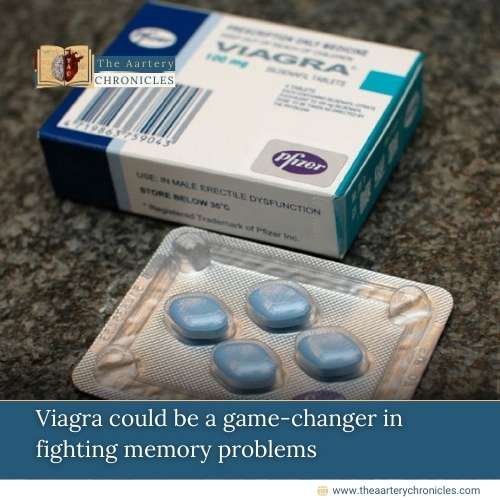
Viagra could be a game-changer in fighting memory problems
Introduction
Sildenafil, widely known by its brand name Viagra, is renowned for its use in treating erectile dysfunction. However, recent research indicates that it may also play a role in preventing memory problems related to vascular dementia. This discovery could revolutionize the fight against dementia, offering hope to many individuals at risk.
What is Vascular Dementia?
Vascular dementia impacts cognitive functions like memory, reasoning, planning and judgment. It results from decreased blood flow to the brain, causing damage to brain tissue. This type of dementia differs from Alzheimer’s disease where Amyloid beta plaque deposition in the brain hinders neuron connectivity.
Research Findings
A study by scientists at the University of Oxford, published in Circulation Research, has shown that sildenafil increases cerebral blood flow and enhances blood vessel function. These improvements could potentially prevent or delay the onset of vascular dementia. City doctors have acknowledged this research as a significant advancement in dementia treatment.
Expert Insights
Dr. Praveen Gupta, principal director of neurology,Fortis, highlighted the differences between vascular and Alzheimer’s disease dementia. While both result in cognitive impairment, their underlying causes differ. In vascular dementia, brain cell damage is due to obstructions in blood vessels, whereas amyloid plaques cause Alzheimer’s dementia.
Burden of Vascular Dementia
The study titled “Vascular Cognitive Impairment in India” shows the burden of vascular dementia is Major in the country. Out of approximately 5.3 million dementia patients in India, nearly 40% suffer from vascular dementia. Dr. Gupta emphasized the need for larger studies to confirm sildenafil’s efficacy before it can be considered a standard treatment.
Risk Factors and Types of Vascular Dementia
Dr. Manjari Tripathi, head of the neurology department at AIIMS, identified key risk factors for vascular dementia, including high blood pressure, smoking, diabetes, hypertension, obesity, obstructive sleep apnea, and atherosclerosis.
She explained that vascular dementia could manifest in different forms. Multi-infarct dementia (MID) results from multiple small strokes, while strategic infarct dementia occurs from a single infarct in a crucial brain region.
Immediate and Severe Cognitive Impairments
Strokes can affect individuals of all ages, leading to immediate and severe cognitive impairments such as diminished reasoning, logical thinking, attention, and judgment.
Unlike the gradual progression of Alzheimer’s dementia, the cognitive deficits from strokes are often sudden and profound.
Conclusion
Dr. Rajeev Mehta, senior psychiatrist at Sir Ganga Ram Hospital, observed that memory deficits in vascular dementia generally appear in stages.
While the Oxford research is promising, Dr. Jitendra Nagpal, chairman of the Institute of Mental Health at Moolchand Hospital, mentioned the need for comprehensive multi-centric trials to substantiate these findings. Nevertheless, any potential benefit for chronic sufferers is a welcome step towards cognitive recovery.
This study suggests that sildenafil may lead to improvements in vascular dementia. These findings offer hope for future treatments, but they still need to be confirmed through larger studies.
Source: Inputs from various media Sources










